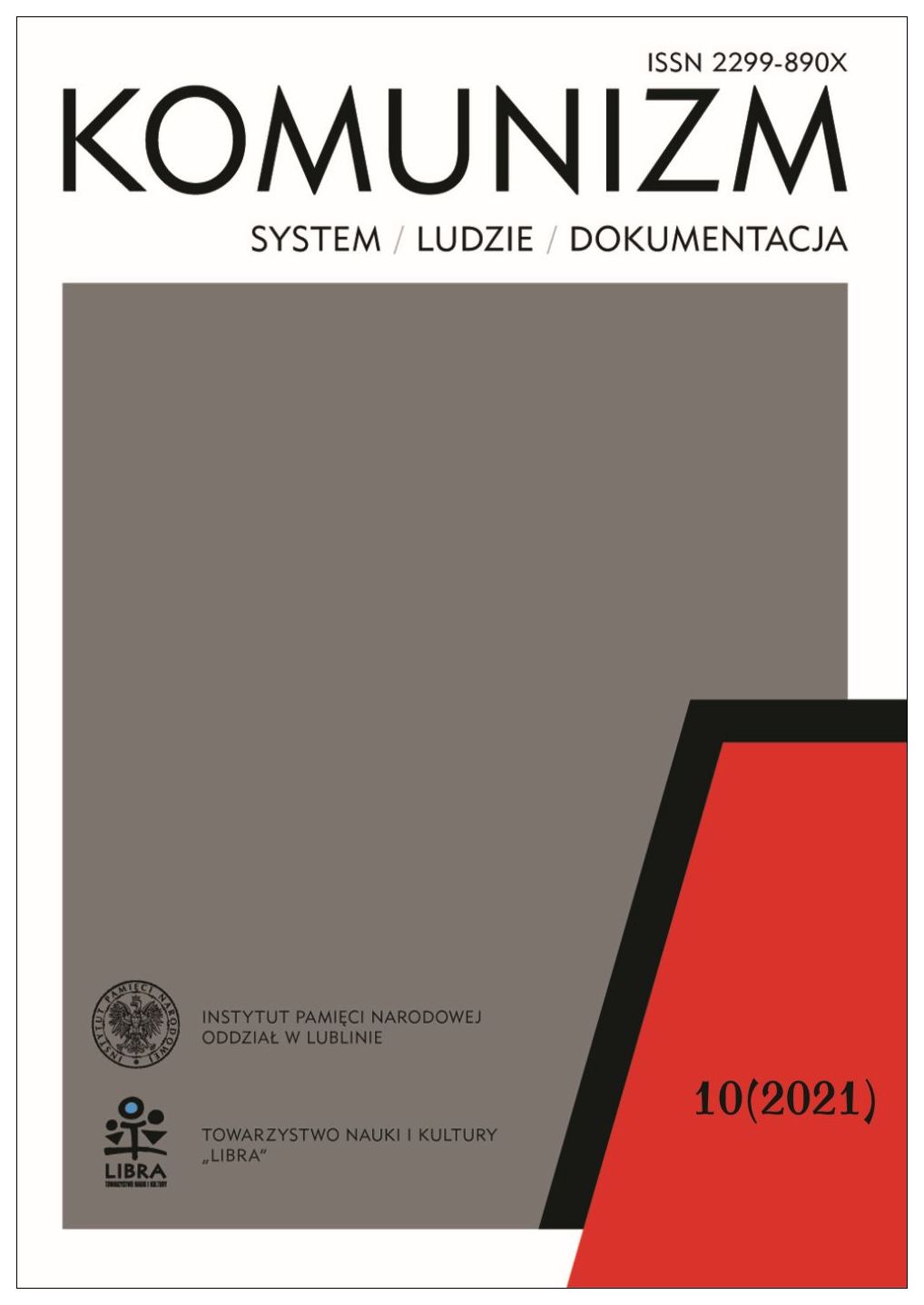Polityka władz polskich wobec reemigracji, repatriacji i uchodźstwa z porewolucyjnej Rosji (na przykładzie województwa lubelskiego)
Komunizm: System - Ludzie - Dokumentacja, No 10 (2021), pages: 201-202
Publication date: 2023-03-23
Résumé
The First World War, territorial disputes, and the Polish-Bolshevik war caused major changes in the demographic, national and religious structure of the Polish lands, including the Lublin region. The south-eastern part of the former governorate was the most depopulated which, among others, resulted from the Russian evacuation in the summer of 1915, war death toll, conscription to the army or recruitment to work. Other significant contributors were increased mortality and a drop in the number of births that were triggered, inter alia, by an epidemic of infectious diseases. Nevertheless, prior to the end of hostilities, the displaced people and refugees began to return to the country. The influx of newcomers from Russia posed a great challenge to Poland, which at that time was struggling with the post-war economic and political crisis, and waging costly border wars. The authorities, extending a warm welcome to compatriots, were generally reluctant to see people of different than Polish ethnicity returning to the country, especially Ukrainians (the dispute over the Chełm region, administratively separated from the Lublin governorate in 1912 as a land “indigenously Ruthenian”, was still very much alive and even fuelled by the Brest Treaty, under which this area was to fall to the Ukrainian People’s Republic) and Jews (perceived as a vanguard of the communist revolution, unwelcome due to the planned nationalization, here “polonization” of trade and industry). The Polish authorities, obliged by national and international law to accept repatriates and refugees, categorized newcomers and multiplied bureaucratic obstacles for people seeking, for instance, citizenship or the right of residence. In practice, offices made their efforts to regulate the volume of migration, and such measures were most often applied towards “foreigners” by nationality, not always following objective legal and economic premises or justified suspicions of subversive and antiPolish activity. The attitude towards people arriving from Russia was an outcome of the
state’s nationalist policy in the first years after regaining independence, which is clearly illustrated by the Lublin Voivodeship, a politically sensitive area with its heterogeneous ethnic and religious structure.
Articles les plus lus par le même auteur ou la même autrice
- Konrad Zieliński, Oblicza inteligencji żydowskiej w Polsce w XIX i XX wieku (do 1939 r.) , Komunizm: System - Ludzie - Dokumentacja: No 7 (2018)
- Konrad Zieliński, Jeszcze o Jesziwie Mędrców Lublina (1930–1939) , Komunizm: System - Ludzie - Dokumentacja: No 10 (2021)
 Język Polski
Język Polski
 English
English
 Русский
Русский
 Italiano
Italiano
 Français (France)
Français (France)
 Deutsch
Deutsch
 Українська
Українська
 Čeština
Čeština



 PDF (Język Polski)
PDF (Język Polski)
